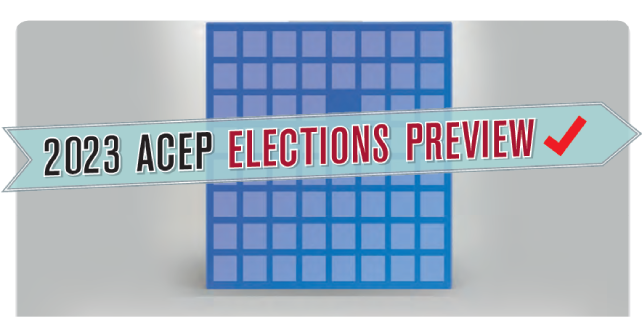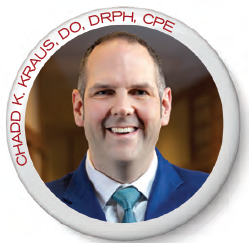
While many of us were initially treated as “health care heroes” during COVID, this quickly deteriorated into angry patients and families who vented their frustration at the emergency department staff. The increase in hostility and workplace violence also has driven medical students to reconsider if emergency medicine is truly their calling. I have had medical students tell me they were leaning away from emergency medicine because of safety concerns.
Explore This Issue
ACEP Now: Vol 42 – No 07 – July 2023The COVID pandemic also exposed massive holes in the “health care safety net.” For those of us who work in critical access hospitals with variable specialty coverage, COVID created massive patient safety issues. Every facility cited “capacity” and was blanketly declining every transfer unless it was trauma, STEMI, or stroke. In many cases, patients deteriorated and died from conditions requiring specialists while we begged for anyone to help. Medical students witnessed our absolute frustration with the system, and I am certain it made them question their decision to pursue emergency medicine.
ACEP is already taking steps to address boarding and workplace violence. However, I still think there is much more that can be done, and these are two issues that we must continue to pursue through advocacy and legislation. Additionally, I feel ACEP should lead the way on pursuing revisions to EMTALA that would update an outdated statute and guarantee that critically ill patients have access to definitive care.
Unfortunately, these issues have also caused many emergency physicians to become frustrated and speak negatively in front of medical students. It is imperative that we not only work to fix these issues, but also encourage our members to support our specialty and attract quality candidates for emergency medicine. They are the future of emergency medicine!
 Chadd K. Kraus, DO, DrPH, CPE, FACEP
Chadd K. Kraus, DO, DrPH, CPE, FACEP
(Pennsylvania)
Current Professional Positions: Attending emergency physician and system director for EM research, Geisinger Medical Center; director of research, American Board of Emergency Medicine (ABEM)
Internships and Residency: Emergency medicine residency, Lehigh Valley Network, Allentown, Pennsylvania (2014)
Medical Degree: DO, Philadelphia College of Osteopathic Medicine, Philadelphia
Response
Aside from our founding, this is the most exciting time in the history of emergency medicine—a time of volatility, uncertainty, complexity, and ambiguity—a time for us, as emergency physicians, to forge a bright future to become the most attractive specialty. Together, we have navigated turbulent times the last few years. Uplifted by public cheers during COVID’s peak, now we are burdened by a broken system. Boarded inpatients, inadequate resources for patients with psychiatric needs, violence against emergency physicians and ED staff, payers refusing to fairly reimburse us, and non-physicians maneuvering for independent practice, have left us feeling unappreciated, morally injured, and ready to quit what feels like an unsustainable career. As an associate residency program director during the 2022 and 2023 Match, I experienced the impact of these headwinds firsthand. And, contrary to exaggerated media reports claiming that emergency medicine is “no longer cool” to medical students, we can become the most attractive specialty by being adaptable, accessible, and engaged. I pledge to be these three things for you as an ACEP Board member.





No Responses to “2023 ACEP Elections Preview: Meet the Board Candidates”